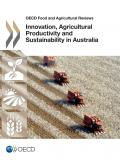The greening of the economy is a shared goal for advanced and less advanced economies alike, particularly where sustained and inclusive employment is an objective for policy-makers. However, the challenges of such greening, and the implications for employment and skills, vary across regions and countries. In the transition from high- to low-carbon production, labour market impacts are becoming more evident and changes will likely affect all workers. However, while these changes may be minor for the majority, they will be substantial for a small number of industries and professions. Preparation for the adjustments is essential to take full advantage of green growth opportunities. Policy-makers today are concerned with how to help their economies to move away from a low-level approach (low job quality, low environment protection, low skills), towards high skills, high productivity, and sustainable economies. This report provides evidence and policy analysis to foster an equitable shift to greener economies and more sustainable societies.
The aim of this paper is to provide a critical review of the literature on the econometric analyses of firm-level determinants to eco-innovation. The review reveals some gaps in knowledge. First, an integrated theoretical framework which merges the insights from different approaches is missing. Second, the influence of some variables is still unsettled (demand-pull and cost-savings), whereas others have hardly been included in previous analyses (internal and international factors). Third, studies on the drivers to eco-innovation versus general innovation are relatively scarce with respect to those on the drivers to eco-innovation in general. Fourth, analyses of the relevance of different determinants to eco-innovation for distinct eco-innovator and eco-innovation types have largely been missing. Fifth, studies on middle-income and developing countries are still scarce. Sixth, the econometric analyses have relied on microeconometric methods based on cross-section data (mostly logit and probit models), whereas the use of panel data is virtually absent.
Three perspectives frame this challenge paper: 1) energy is at the very core of sustainable development, and not just a sector among others; 2) the combined challenges of inadequate access to energy among the world’s poor, the imperative to avoid climate catastrophe and the need to deal with rising and volatile energy prices require an unprecedented, fundamental transformation of the world’s energy system, and 3) that there are technological solutions that already exist that can effectively tackle these challenges over the course of 10-15 years.

This book identifies the drivers and success factors of green industrial policy, which seeks to reconcile the synergies and trade-offs which exist between economic and environmental goals. Greening the economy is a goal which will require enormous investment. As markets are currently failing to provide the required incentives for environmental sustainability, governments must intervene and provide ‘policy rents’ for investments in sustainability while withdrawing rents from polluting investments. In this they will face the risk of political capture by interest groups and difficult choices among technologies. Rent management is therefore the heart of green industrial policy and the focus of this book. On top of this, the country examples provided in this volume focus on the emerging powers, which will have an important influence on the future of our planet.
